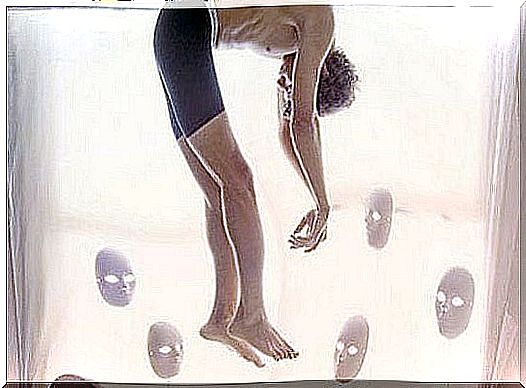Getting Up In The Morning Is The Hardest Part Of The Day If You Have Depression

Depression is different and unique to each person. But in all the darkness there is a common element. If you have depression, the symptoms of this disease are devastating in the morning. The day begins and you feel completely empty of energy, interest, breath…
People with this type of disorder in any of its variants (severe depressive disorder, dysthymia) share a common desire. They wish they had visible pain. That way, their suffering would be clearer, and they would get more understanding, more compassion from people.
Say, “I can not get up in the morning” to a psychologist, and he will understand that this can be depression. But in the eyes of people at work, friends or family, something like this can be interpreted as laziness, apathy, or even an excuse to get out of personal or work-related responsibilities.
It is not easy. Depression is like an internal tornado. It sweeps up everything and changes it. A large part of the body’s processes will slow down, it will change our metabolism, our perception of reality, and the neurochemistry that brings what is known as “daytime variation in the state of mind”.
We will talk about this now.

Good morning depression, there you are again
Andrea is 46 years old, and right now she is going through another depressive episode. Although she was able to overcome it two years ago thanks to medication and psychotherapy.
She noticed that it came back for a very specific reason. It became increasingly difficult for her to get up in the morning. Her energy left her every day, leaving her apathetic and negative, until she finally realized it. The depression had returned.
This known enemy tends to get worse in the early hours of the day, and this is why:
- Daytime variations in the state of mind are characterized by waking up with negative emotions, discouragement and enormous physical exhaustion. These generally get better as the day goes on.
- As various studies explain, most people with depression have altered circadian rhythms. Hormones such as melatonin are released in lower amounts or at the wrong time. This type of thing causes the depressed person, for example, to experience insomnia or feel a certain amount of sleepiness throughout the day.
- Nevertheless, this change in the circadian rhythms of the depressed person can also make them feel colder in the morning. They may have low or non-existent energy, and even be unable to respond to specific stimuli due to their low levels of alertness.
We should add another factor to this. It is the clear feeling of not feeling ready for the day that has just begun. This defenselessness and the feeling that one is sure that one is not able to handle one’s responsibilities will only increase the feeling that we are totally losing control of our lives.

How can we confront the most difficult part of the day?
Let’s go back to our main character, Andrea. She is the woman who is probably back in depression after hoping it was gone for good. Although depression is an old “friend”, she does not hesitate to go back to her specialist to see which prescriptions may be useful.
Treatments can help regulate specific neurotransmitters that alter our circadian rhythms. In addition to taking the medication, Andrea entered into certain routines that would help her deal with her illness much more effectively.
Let’s look at them now.

Advice for meeting the morning symptoms of depression
Before anything else, it is important to remember that both interpersonal therapy and cognitive behavioral therapy can be very helpful.
Our main character also decides to see his GP to have some tests performed. She knows that things like the thyroid gland, a low vitamin B12 level, or even a liver problem, can cause or worsen this lack of energy in the morning.
- Then she gets into a routine that starts with stretching exercises in the morning. As soon as she gets up, she performs light yoga exercises for 10 minutes in her room.
- Then she forces herself to shower and get dressed.
- What comes next is as simple as it is therapeutic. Andrea has to call someone by phone every morning to improve her mood and increase her energy and willpower. In her case, it’s her mother. For you, it may be a sibling or mentor who can motivate you.
- After that, Andrea eats calmly and without haste. She almost never feels like eating anything in the morning, but she makes herself do it because she knows that her brain needs this energy in the morning.
Last but not least, she sets aside time to meditate. 15 or 20 minutes is a lot of time. It is a special time of connection with yourself where you can process your thoughts and negative emotions a little better.
By doing this, Andrea gets a little more peace and motivation. She uses these to meet today’s challenges a little better.
These simple tips can also be a great help to you if you have depression.









